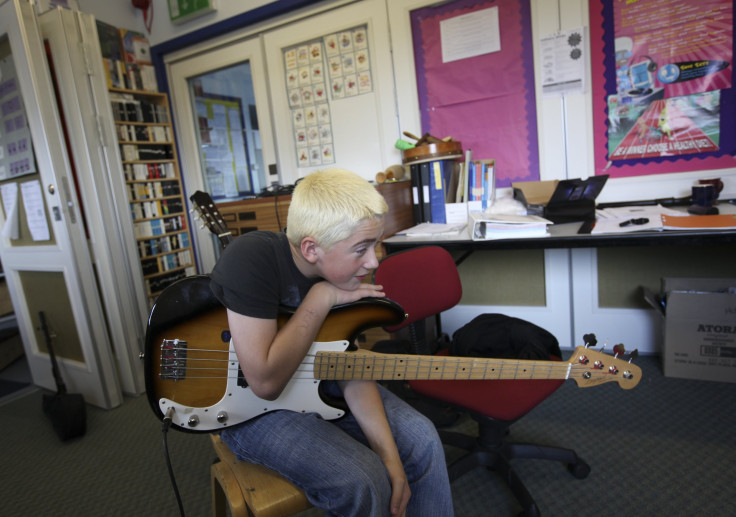Music Lessons Can Enhance Your Child's Learning Ability Well Into Adulthood

Music is not just something we listen to on our iPods. Music has the ability to influence how we feel and even how we think. Giving your child the opportunity to take part in musical training can be a great investment in his or her future. New research reveals that providing your child with music lessons early in life can have long-term benefits on the brain.
A study conducted at Northwestern University's Auditory Neuroscience Lab, found music courses had enhanced neurological responses to sounds, a characteristic linked to improved learning and listening abilities.
Since the brain signal is a representation of the sound signal, researchers were able to discern what elements of sound are captured by the nervous system and how it is either weakened or strengthened in different people with different musical experiences and abilities.
With lead study author Nina Kraus, director of the Auditory Neuroscience Lab, a team of researchers tested 45 young adults with varying amounts of musical training. Participants were grouped into three groups based on age, IQ and history of musical training. One group had no musical instruction, another had one to five years and the other had six to 11 years of training.
The two groups with musical training began instrumental practice around the age of nine, the most common age of in-school musical training. Results confirmed musical training during childhood led to more vigorous neural processing of sounds later in life.
"The way you hear sound today is dictated by the experiences with sound you've had up until today," Kraus said. "This new finding is a clear embodiment of this theme."
There have been several programs throughout the years dedicated to save music education in schools. VH1's Save The Music Foundation, founded in 1997, core mission is to restore musical education programs, giving each child the opportunity to enhance their critical thinking skills and their ability to work as a team.
With the presidential election less than three months away, and so many schools undergoing budget cuts to program such as the arts, constituents should take heed to what each presidential candidate can offer in regards to investing in the future of the children.
"We hope to use this new finding, in combination with past discoveries, to understand the type of education and remediation strategies, such as music classes and auditory-based training that might be most effective in combating the negative impact of poverty," Kraus said.
The study was published in The Journal of Neuroscience.



























